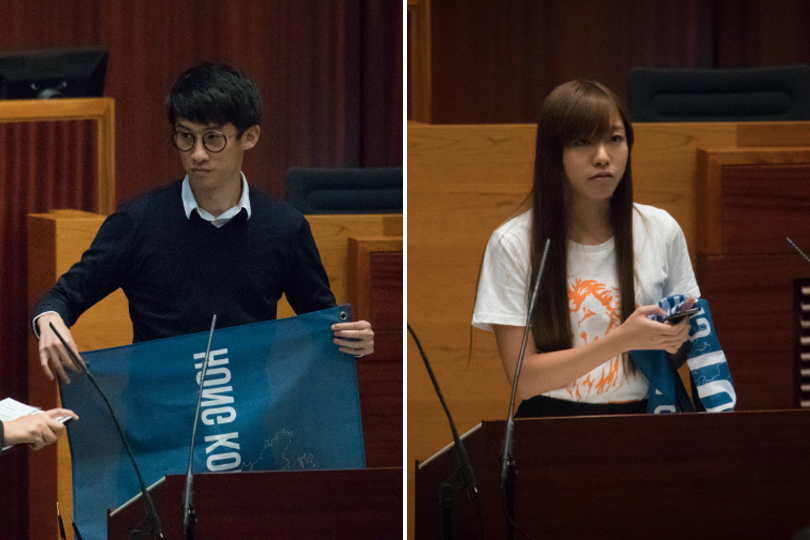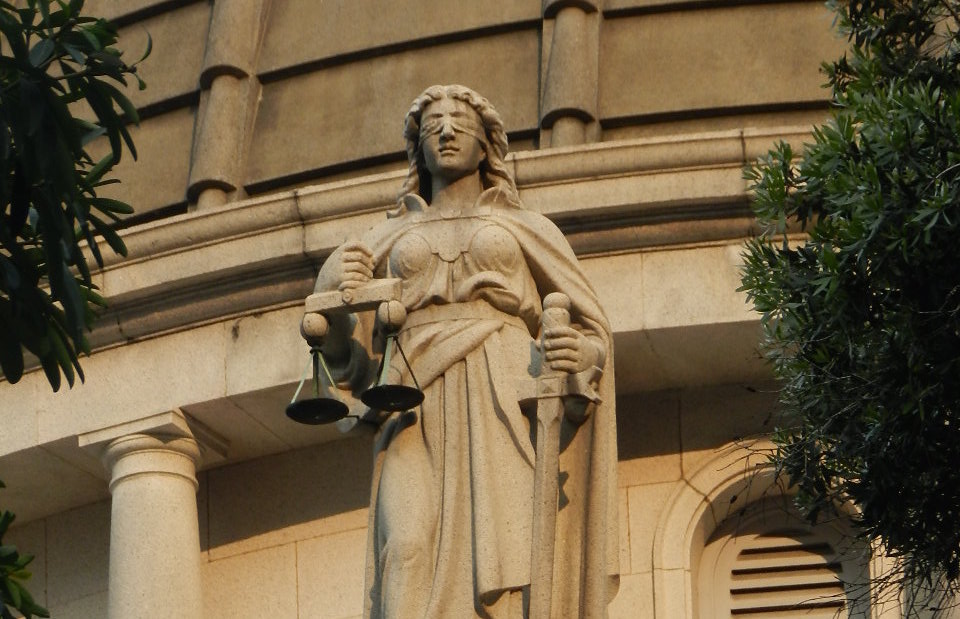The government argued in court on Friday that Hong Kong’s courts are bound by Beijing’s interpretations of the Basic Law, the city’s mini-constitution.
The High Court began hearing Thursday an appeal by Youngspiration politicians Yau Wai-ching and Baggio Leung Chung-hang, who were disqualified from the legislature last week after the lower court ruled that they had refused to take their oath by virtue of their controversial conduct during last month’s Legislative Council swearing-in session.

‘Uneasy’
Senior Counsel Benjamin Yu, representing the government, said that the courts can decide on the internal affairs of the Legislative Council as the principle of non-intervention does not apply. He added that the Basic Law, not the legislature, is “supreme.”
The appellate judges made similar remarks on Thursday when counsel for the Youngspiration duo submitted their views. The judges said that common law principles cannot override the Basic Law, which is supreme under Hong Kong’s legal system.
The High Court’s Chief Judge Andrew Cheung Kui-nung similarly questioned Yu’s use of common law principles in backing up his argument. He said Beijing had handed down an interpretation in response to the oath dispute, and the courts have previously established that Beijing’s rulings are legally binding.
As a former British colony, Hong Kong adopted the common law system. In common law, legal principles laid down by judges are binding on future cases. It stands in contrast with the civil law system, in which written constitutions and law codes carry the most weight. The Chinese legal system is a mixture of civil and socialist law.

The judge said he felt “uneasy” that all parties to the judicial review challenge continued to rely on common law principles when Beijing had already laid down the legal requirements of oath-taking.
He also said Thursday that it would be “arrogant and ignorant” for Hong Kong’s courts to decide what China’s legal system can or cannot do under the One Country, Two Systems framework.
Yu responded that – as a common law practitioner – he can only apply what he was trained to do. He said it would not be an issue if he was a mainland lawyer standing before a Chinese court.
The counsel agreed that Hong Kong’s courts are bound by Beijing’s interpretations. “The headmaster had spoken,” he said, adding that the court is like “a teacher who follows the instructions of the headmaster.”

Other arguments Yu set forth Friday were similar to those he made during the trial hearing. He said judges should be the final adjudicator of the oath dispute, and that oath-takers who “decline or neglect” to take their oath must be automatically disqualified under the Oaths and Declarations Ordinance.
He added that oath-taking is a constitutional matter, not an internal affair of the legislature. “The Legislative Council is not a private club,” Yu said.
On Thursday, counsel for the Youngspiration duo maintained that the court should refrain from interfering in the internal affairs of the legislature under the principle of non-intervention. However, the appellate judges said the Basic Law “trumps” common law, and therefore common law principles such as non-intervention do not apply.
They also argued that Beijing’s ruling amounts to an amendment of the Basic Law, which should follow a different procedure. Mr Justice Cheung said the lawyers would need to provide expert evidence to back their argument.

